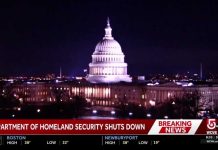
Parents across America are in an uproar as schools make critical decisions about their children’s lives without their knowledge.
At a Glance
- Parents are filing lawsuits against schools for supporting student gender transitions without parental notification.
- Legal battles reveal a deep divide over parental rights and student privacy.
- School districts face legal and ethical dilemmas amid changing policies.
- The Supreme Court has declined to settle the issue, leaving uncertainty in its wake.
Legal Battles Over Parental Rights
Parents from coast to coast are clashing with school districts over policies that allow students to change their gender identity at school without informing their families. These lawsuits underscore a fundamental tension between parental rights and the autonomy of minors, particularly when it comes to life-altering decisions such as gender transition. The legal landscape remains murky, with some courts siding with schools and others acknowledging the parental rights at stake.
The Obama administration laid the groundwork for these policies by issuing guidance in 2016 that supported the rights of transgender students, only for these to be rescinded by the Trump administration a year later. This back-and-forth has resulted in a patchwork of local and state policies, leaving many parents frustrated and confused about their rights and roles in their children’s education.
Stakeholders and Motivations
Parents and advocacy groups are leading the charge in these legal battles, emphasizing their right to be involved in critical decisions affecting their children. These parents argue that schools are overreaching and undermining family authority. On the other hand, school districts implement these policies to comply with state and federal anti-discrimination laws and to provide a supportive environment for transgender students who may not find support at home.
Students, particularly those who are transgender or gender-nonconforming, are caught in the middle. Many students seek privacy and safety, fearing potential backlash from unsupportive families. Meanwhile, LGBTQ advocacy organizations continue to support student privacy, arguing that the safety and well-being of students should come first. The courts are the ultimate arbiters, but their rulings have been inconsistent, reflecting the complex, evolving nature of this issue.
Current Developments and Court Rulings
Recent developments in Colorado exemplify the ongoing struggle. In July 2025, the Montezuma-Cortez School District decided to remove LGBTQ policy protections, aligning with other districts challenging transgender athlete participation. This move is part of a broader trend of districts reconsidering or rescinding LGBTQ protections amid political pressures. The Tenth Circuit Court of Appeals recently upheld a dismissal of a parental rights challenge against a district’s gender identity policy, although a concurring judge acknowledged the substantive due process issues raised by the parents.
Despite the ongoing legal battles, the US Supreme Court has declined to intervene, leaving the lower court rulings in place. This decision maintains the status quo and underscores the legal uncertainty surrounding these issues. School board members and state officials continue to debate the implications of these policies, often citing federal funding threats and the need for local control as key considerations.
Implications for the Future
The implications of these legal battles are significant and far-reaching. In the short term, school districts face increased legal uncertainty and a chilling effect on their support for transgender students. Tensions between parents, schools, and advocacy groups are likely to escalate, as each party fights for what they believe is right.
In the long term, the issue could eventually reach the Supreme Court if circuit splits develop, potentially leading to significant changes in state and local policies. The ongoing debate over the balance between student privacy and parental rights is emblematic of broader societal discussions about LGBTQ rights, parental authority, and the role of public education. As these cases continue to unfold, the education sector is facing increased litigation risks and policy volatility, with potential legislative responses at both federal and state levels.
Sources:
Law.com/Holland & Hart, May 2025




